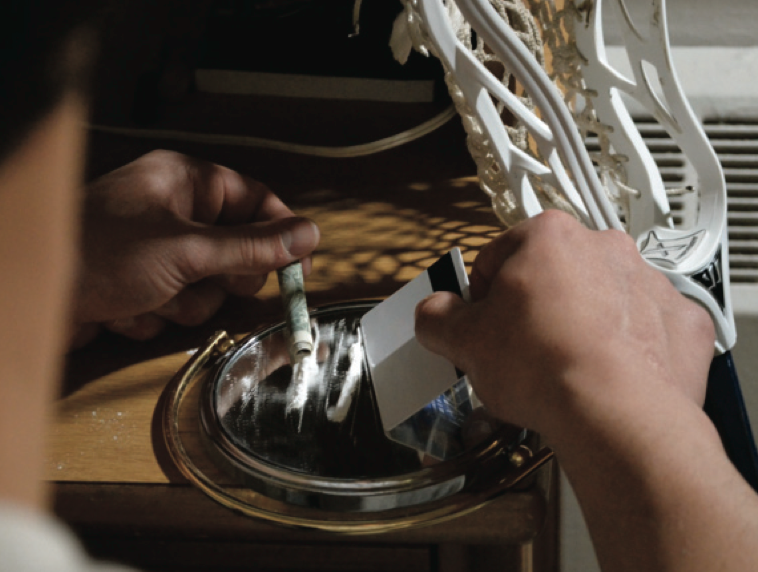Failed Drug Test Reveals More
When a pair of Pace men’s lacrosse players failed a random drug test last month, it led to the revelation that some other athletes have been manipulating detection through creative and unhealthy methods.
While Athletic Director Mark Brown and his staff maintain that the institution’s drug policy has been mostly successful in preventing major substance abuse among athletes, current and former Pace athletes indicate that this may not be the case.
One current athlete, whose athletic eligibility was threatened due to substance abuse, shared this observation.
“Drug tests make people do worse drugs than they would normally do,” said the source, who requested that their identity be concealed. “People that would normally just do pot, which stays in your system for longer, do drugs like [cocaine] and [MDMA] because they don’t stay in your system for as long.”
The athlete recalled many instances in which team members would engage in alcohol consumption and recreational drug use on nights before events, with neither substances appearing on long-term tests. The source claimed that the athletes would pair alcohol with benzodiazepines, a dangerous combination that causes heightened inebriation.
“I’m sorry but I have no knowledge of any of the accusations you mention. What I can reiterate is that we have a testing policy that is co-authored by the National Center for Drug Free Sport, approved by our university and it is stronger than most other universities. The policy was developed with an emphasis on student wellness and encouraging healthy decision making,” said Brown on Sunday in an email to The Pace Chronicle.
According to former psychological substance abuse counselor and current Chairperson of Pace’s psychology department Dr. Rostyslaw Robak , mixing alcohol and benzodiazepines causes an overproduction of the neurotransmitter, Gaba. A surplus of Gaba may well be cognitively damaging and could also have a lasting impact on our personality, according to a study by neuroscientist Joseph LeDeoux.
“We do know that synapses between neurons are filled with neurochemicals, one of which is Gaba,” Robak said. “And when the two substances are taken together the combination causes a heightened production of [Gaba].”
Sometimes, those athletes mixing alcohol and benzodiazepines were sent home by their respective coaches while on the road, according to one source, due to excessive inebriation.
Although some athletes were not discrete in using banned substances others made sure that not even the drug tests would be able to pick up on the chemicals that were still present in their systems.
In one instance, two football players underwent a procedure called an “oil change” in an effort to avoid detection.
“[An oil change] is when you urinate and then insert a catheter and fill your bladder back up with someone else’s clean specimen,” the source said. “Nursing students did it for them.”
Multiple sources with direct knowledge of the event confirmed that nursing students assisted the players in the process. Both current and former deans of the nursing school were unaware of the occurrence.
“This is the first time that the incident is being brought to the department’s attention,” Dean of the College of Health Professions and Dean and Professor of Lienhard Harriet Feldman said. “It is a violation of academic and nursing conduct and had the department known at the time, it would have moved to dismiss the students.”
A former football player noted that on the freshman-dominated team, it was the upper-classmen that were using both recreational and performance enhancing drugs.
“There was a very small sect, maybe five kids, that juiced and did cocaine,” said the former football player, who added that prior to playing for Pace he dabbled in recreational substances but was conscious to remain clean and faithful to the university’s drug policy.
According to the source, those who tested positive for banned substances served their suspensions and ultimately worked their way back onto the team.
Because Pace’s drug testing policy is co-authored by the National Center for Drug Free Sport and approved by the University, Brown believes that makes it stronger than those of other universities. Though some student-athletes have proven proficient at cheating the system, Brown claims to have found no tangible evidence of a substance problem.
“An overwhelming majority of students exercise good judgment and never have an issue with these tests,” Brown said.“I only see occasional positive tests thus proving our policy to be effective. I hesitate to voice my personal opinion as I don’t feel that it is relevant. I don’t have the ability to change institutional policies.”
Brown does, however, have the authority to enforce them.
Update
Since publication of this article, the author has received a large amount of criticism and response. For a full editorial, click here.
Your donation supports independent, student-run journalism at Pace University. Support the Pace Chronicle to help cover publishing costs.


